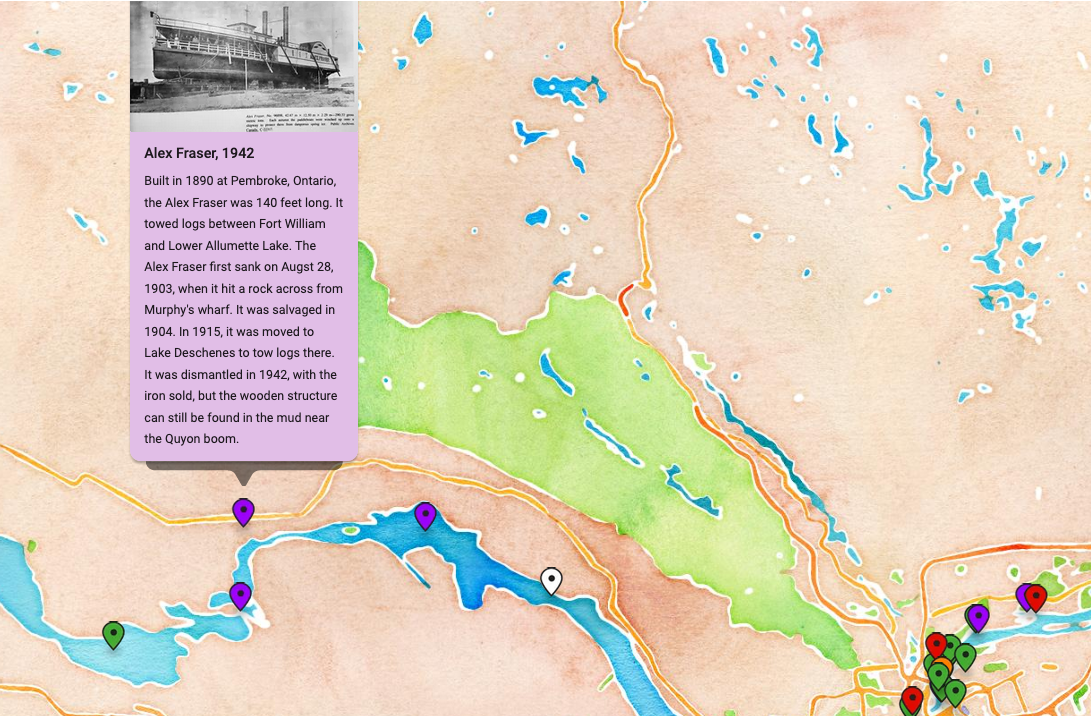DHCU Irregular Issue 6: Welcome to 2021?

'Upward Roller Coaster' by Jr Kopa via unsplash.com
Welcome to 2021?
I started writing a kind of generic 'welcome to the winter term best wishes we're all on the home stretch for this academic year' piece.
And continues to happen.
What's the DH take on all of this? It's too soon to say, but pay attention to the online dimension. The performances for Instagram. The expulsion of the President from social media. The amateur-hour data security practices of parler, the right-wing social network. And the [material culture as well}(https://thehill.com/homenews/news/533475-flags-signs-and-other-items-left-behind-in-capitol-riot-to-be-preserved-as).
I originally wanted to draw you attention to this project, Rendering Revoltuion,
A collection of sources and stories that speak to the importance of dress, fashion, materiality, and adornment to visions of freedom before, during, and after the Haitian Revolution. Taking as its starting point the global significance of the Haitian Revolution as one of the most impactful challenges to modern European definitions of citizenship and human rights, Rendering Revolution uses the prism of fashion to consider the material, social, and political reverberations of the Revolution as “a world-historical moment.” Our fashion-oriented approach allows us to negotiate the local and global legacies of the Haitian Revolution in novel and productive ways.
It seems to me that perhaps our current moment is going to need novel lenses and perspectives to understand; perhaps that's the challenge for DH right now.
Upcoming events and opportunities
- Annual meeting for the DH program. Our program's governance structure requires an annual meeting. This will take place January 28th at 1 pm. Watch your email for the invitation link, DH faculty.
- Social Media Research workshop with Brandon Rigato. Brandon is a PhD student in Communications in the School of Journalism and Communication. His focus is on terrorism, extremism, radicalization and social movements, with a particular interest in right-wing and religious terrorism. He is a member of Align Media Lab at Carleton University and a junior affiliate at The Canadian Network for Research on Terrorism, Security and Society (TSAS). Rigato is a co-author of “The 60 Days of PVE Campaign: Lessons on Organizing an Online, Peer-to-Peer, Counter-radicalization Program,” Journal for Deradicalization, Fall 2017. He is a research assistant on the Populist Publics: Memory, Populism, and Misinformation in the Canadian Social Mediascape, a most timely and necessary project! Register your interest for the workshop at this form.
Hone your skills
Melanie Walsh, who is a Postdoctoral Associate in Information Science at Cornell has put together a tremendous resource as part of her class on 'Introduction to Cultural Analytics' - a complete book with code that you can run/modify in your browser!. I highly recommend it.
Python for Cultural Data The Introduction to Cultural Analytics & Python textbook offers an introduction to the programming language Python that is specifically designed for humanities students and scholars with no previous programming experience. It demonstrates how Python can be used to study cultural materials such as song lyrics, short stories, newspaper articles, tweets, Reddit posts, and film screenplays. It introduces computational methods such as web scraping, APIs, topic modeling, Named Entity Recognition (NER), network analysis, and mapping.
Miriam Posner, as part of her graduate course 'Introduction to DH' has a presentation here on 'reverse engineering' DH projects. Why would you want to reverse engineer someone's DH work? It can inspire you in your own work; it can help you learn to evaluate the significance and importance of DH work!
Spotlight
In this issue, I want to highlight some DIGH5000 projects by students in this year's DH cohort.
The first is by Ona Bantjes-Rafols, Locating Queer Memories. "There are so many stories hidden in city streets, histories invisible to visitor and resident alike, and Barcelona is no exception. I walked the Rambla hundreds of times without knowing it was the site of the very first gay rights march in the Spanish State, on June 26, 1977, for example... "

Jaime Simons has put together a kind of archaeological gazetteer, Shipwrecks of the Ottawa River and Rideau Canal.

Nico Mjones' project is called 'Losing Rage' : The project serves as a case study both in how accessible public-facing record keeping is as well as how different communities remember and refer to historical events and records in digital maintenance. The 1989 Brockville, ON Quebec flag desecration is used to compare how differently Anglophone and Francophone online publicly-accessible record keeping varies on an event recalled by Francophones to have great significance in the period.
If you have a student who has done interesting DH work, get in touch! We would also like to compile projects, theses, or other pieces on the Carleton Digital Humanities programme website.
If you know of someone else who might like to receive The DHCU Irregular, please do forward this and send them to the sign up page.
Best, Shawn
shawn.graham@carleton.ca
@electricarchaeo on Twitter